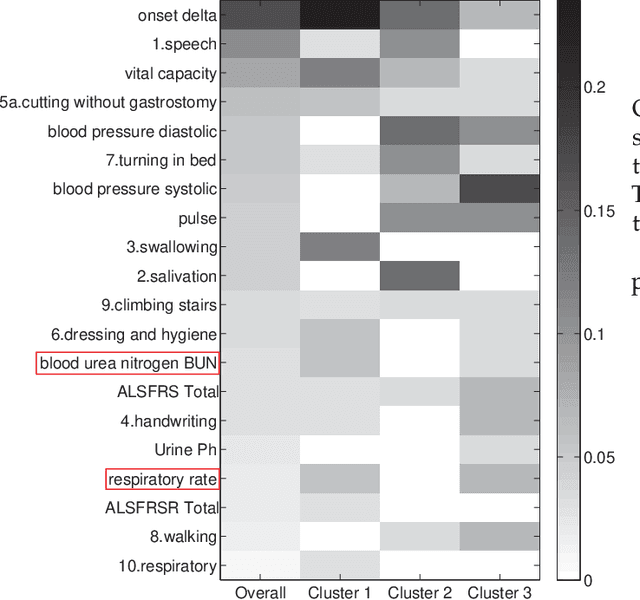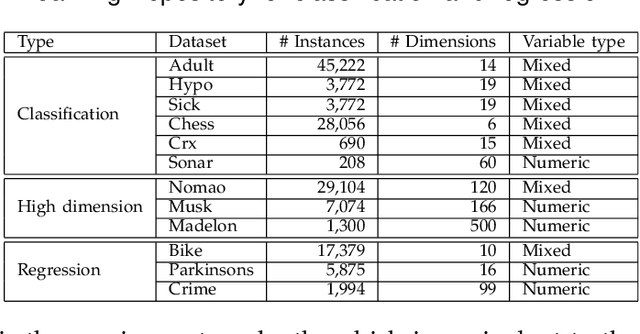Wenzhu Tong
DPPred: An Effective Prediction Framework with Concise Discriminative Patterns
Oct 31, 2016



Abstract:In the literature, two series of models have been proposed to address prediction problems including classification and regression. Simple models, such as generalized linear models, have ordinary performance but strong interpretability on a set of simple features. The other series, including tree-based models, organize numerical, categorical and high dimensional features into a comprehensive structure with rich interpretable information in the data. In this paper, we propose a novel Discriminative Pattern-based Prediction framework (DPPred) to accomplish the prediction tasks by taking their advantages of both effectiveness and interpretability. Specifically, DPPred adopts the concise discriminative patterns that are on the prefix paths from the root to leaf nodes in the tree-based models. DPPred selects a limited number of the useful discriminative patterns by searching for the most effective pattern combination to fit generalized linear models. Extensive experiments show that in many scenarios, DPPred provides competitive accuracy with the state-of-the-art as well as the valuable interpretability for developers and experts. In particular, taking a clinical application dataset as a case study, our DPPred outperforms the baselines by using only 40 concise discriminative patterns out of a potentially exponentially large set of patterns.
 Add to Chrome
Add to Chrome Add to Firefox
Add to Firefox Add to Edge
Add to Edge